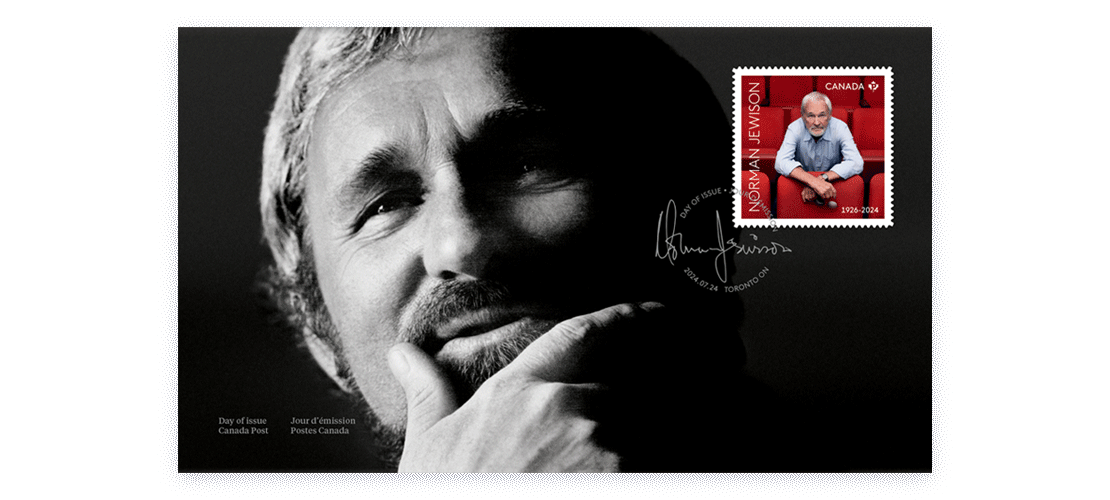There are few filmmakers in the storied history of cinema who have carved out a career quite like Norman Jewison (1926-2024).
The celebrated Canadian director was the creative force behind a host of Hollywood hits, and the architect of countless iconic movie moments: Sidney Poitier, portraying Virgil Tibbs, a Black detective visiting the American South, defiantly telling Rod Steiger’s racist character, “They call me Mister Tibbs!” in In the Heat of the Night (1967); Tevye, the patriarch of a Jewish family, singing about the virtues of “Tradition!” before his community is forced to flee their homes in Fiddler on the Roof (1971); Cher slapping Nicolas Cage and telling him to “snap out of it!” after he tells her he loves her in Moonstruck (1987); Denzel Washington’s passionate plea that “I’ve committed no crime. A crime has been committed against me,” in the moving story of wrongfully convicted boxer Rubin Carter in The Hurricane (1999).
The list goes on.
These moments, etched in the minds of moviegoers around the globe, are a testament to Jewison’s staying power and ability to leave an impression on his audiences — long after they’ve left the theatre. The genre-spanning director was the recipient of many honours, from Academy Award and Golden Globe nominations to a star on the Hollywood Walk of Fame and invested into the Order of Canada both as an Officer and a Companion.
Canada Post is proud to honour the career and legacy of Jewison with a commemorative stamp. The stamp image was photographed at the Canadian Film Centre in 2007 by photographer Peter Bregg and was selected by Jewison himself, who worked closely with Canada Post to develop the stamp prior to his death earlier this year.

Growing up in Toronto’s East end, Jewison was an avid stamp collector (his favourite was the 1929 Bluenose stamp) and was even sworn in by the postmaster so he could work in the post office of his father’s general store.
In those early days, he was also an avid moviegoer with an innate gift for describing the characters, scenes and twists and turns of the plot. He convinced kids in his neighbourhood to pay him to watch the latest matinees and recount the films’ events in detail to them. Jewison turned these early days as a neighbourhood storyteller into a career, eventually moving into the professional ranks when he began his directorial career in television with CBC in 1951.
His big break came in 1962 as the director of the Tony Curtis comedy 40 Pounds of Trouble, his first feature film. It wasn’t long before his career took off and his reputation developed, earning opportunities to direct some of the biggest stars of the 1960s, from Steve McQueen to Doris Day.
Jewison’s films masterfully blended style and substance and often tackled important social issues, from racial prejudice to the injustices of the legal system and more. Throughout his career, he shone a light on the experiences of marginalized communities. Jewison’s 1967 film In the Heat of the Night tells the story of racist small-town Mississippi cops and the defiant Virgil Tibbs, a Black detective accused of a murder he didn’t commit. Expertly told over a backdrop of growing civil unrest across the United States, it went on to win five Oscars, including Best Picture, and garnered Jewison his first Best Director nomination.
His later film, Fiddler on the Roof, established the gold standard for movie musicals. Then, in his next film, he completely reinvented the genre while telling the story of Jesus’s final weeks in Jesus Christ Superstar. Jewison later chronicled the fight for justice in …And Justice for All; the ups and downs of an Italian-American family in Moonstruck; and the wrongful conviction of boxer Rubin “Hurricane” Carter. Other classics include The Cincinnati Kid, The Thomas Crown Affair, and Rollerball. His career is a master class in range, endurance and potency.
In 1999, Jewison received the Irving G. Thalberg Memorial Award at the Academy Awards for his career achievements. He addressed part of his acceptance speech to the next generation of filmmakers. “My parting thought to all those young filmmakers is this: Just find some good stories,” he told a worldwide audience. “The biggest-grossing picture is not necessarily the best picture. So just tell stories that move us to laughter and tears, and perhaps reveal a little truth about ourselves.”
At home in Canada, Jewison’s greatest impact arguably took place off the screen. In 1988, he established what became the Canadian Film Centre (CFC) in Toronto. In the years that followed, the CFC has proven to be a valuable training ground and incubator for Canadian filmmakers and continues to play a vital role in developing homegrown talent.
Norman Jewison is the latest silver screen icon recognized with a stamp by Canada Post, joining the likes of Donald Sutherland, Mary Pickford, Christopher Plummer and Denys Arcand. He passed away in January 2024 at the age of 97.

Norman Jewison’s silver screen legacy honoured with new stamp
Available now